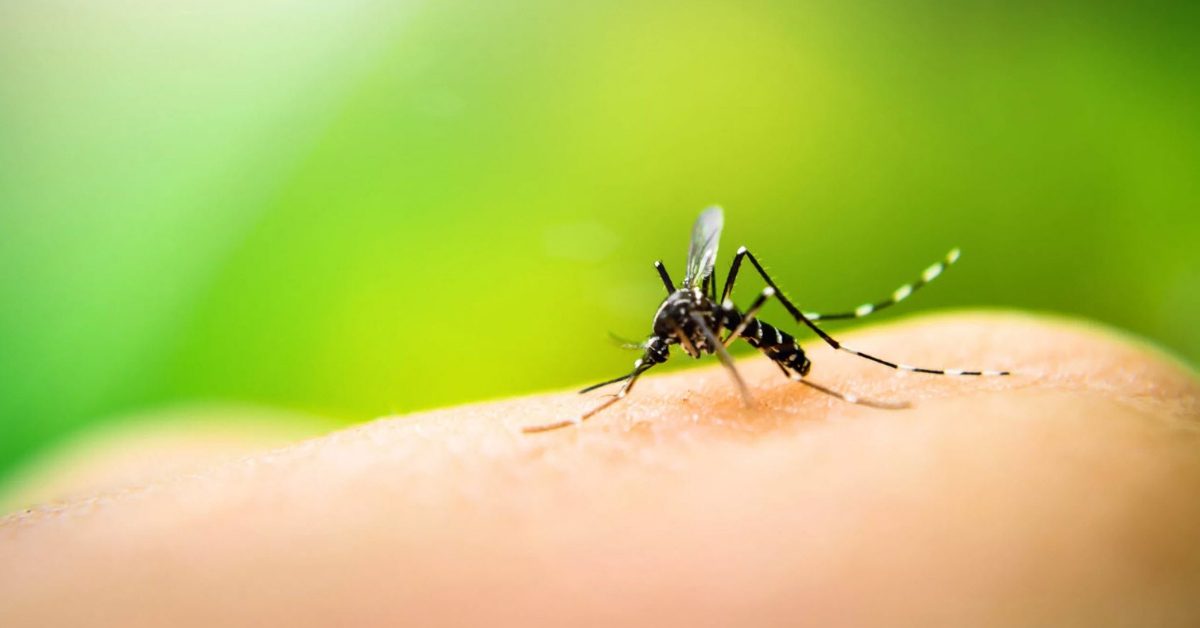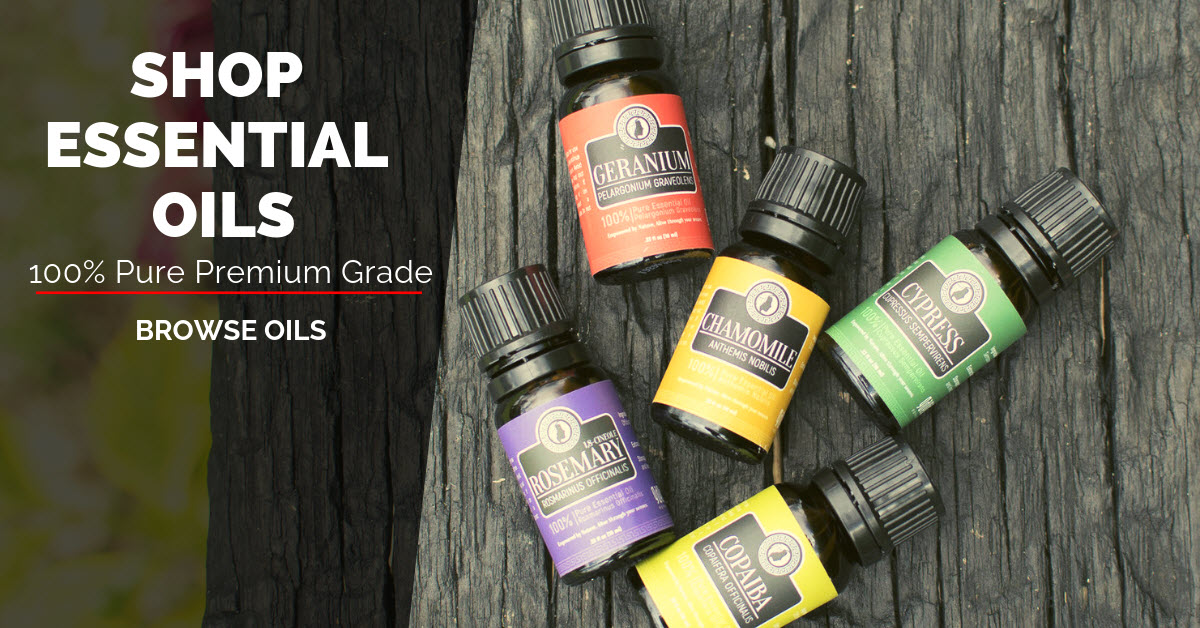Ahhhh, the great outdoors. There’s nothing better than getting into nature and spending hours soaking up the beauty of the natural world.
There are so many amazing creatures living their lives all around us. Sometimes I’ll just sit in one spot in nature and watch everything that happens over the course of an hour.
…Birds flying in complex patterns.
…Deer eating grass.
…Winds blowing the foliage to and fro.
…Ants working together to carry the carcass of a much larger insect back to their colony for food.
And then… the bites.
Essential Oils To The Rescue!
Essential oils are an amazing remedy for insect bites and stings of all kinds. They are easy to transport, and there are many options for oils that work well. NINE amazing options are listed below. (Plus one bonus ally!)
There are also myriad ways of using them both out in the world, and back home when that persistent itch still won’t go away. Check out the ‘how to’ section further in the article for best practices to use essential oils for bug bites.
For most bites, a regular treatment of essential oils will do the trick. There are however, some scenarios where you will want to exercise caution and seek further medical treatment.
Nine Powerful Essential Oils For Bug Bites
1. Sweet Basil (Ocimum Basilicum)
Sweet basil is a gentle anti-inflammatory oil that can soothe the swelling and irritation of bug bites. The antimicrobial properties of this essential oil will help address infection.
Basil is great for all sorts of bug bites, especially scorpion and , and snake bites.
2. Roman Chamomile (Anthemis Nobilis)
Roman chamomile is antimicrobial, antiseptic, and reduces pain and inflammation. It is a great choice for bug bites, especially for children as it is such a gentle essential oil. Chamomile is often added to skin products and lotions for its soothing emollient effects.
It really does the job at reducing redness, itching and irritation. It is also a mild sedative that reduces stress and anxiety. This also makes it effective at inducing sleep, which is really helpful when you don’t want to be up all night scratching!
3. Lavender (Lavandula Angustifolia)
Lavender is antiseptic, antibacterial, antimicrobial, and analgesic, so it’s great at reducing pain and inflammation. Lavender is also great as a stress and anxiety reducer and as a sleep aid, so it is a wonderful oil to use for calming the nervous system while experiencing the itchy discomfort of bug bites.
Lavender is one of my favorite oils for aromatherapy So when you’re resting after you tend to your bites, it’s a great idea to do so in a room where you are diffusing lavender. Lavender essential oil is also a good choice for a spider bite.
4. Lemongrass (Cymbopogon citratus)
Lemongrass is antimicrobial, antibacterial, antiseptic, and anti-inflammatory. It is an analgesic, so can help mitigate the pain of bites. It is mild insecticide that can be used to prevent bites, and is especially good at repelling fleas.
Lemongrass essential oil is also useful to enhance your mood and relax your muscles, so if those bites are getting you down, inhale a little of this oil, take a deep breath, and RELAX.
5. Eucalyptus (Eucalyptus globulus)
Eucalyptus is antiseptic, anti-inflammatory, anti-bacterial, and analgesic, so it’s great for reducing swelling and pain, and healing infection. It is also helpful as an insect repellent.
It can speed the healing of bites, stings, and wounds, and is particularly helpful for horsefly bites. It is very strong for use on skin so make sure to dilute. One drop of eucalyptus per teaspoon of carrier oil is enough.
Exercise caution when using this essential oil with children. There is a constituent in eucalyptus that causes issues with children’s breathing, called 1,8 cineole. Oddly, there is only one insect that likes 1,8 cineole, and that is the orchid bee.
Researchers use the constituent to catch the bee, it loves it so much. Most other insects are repelled by it and of course that is why it is in the plant.
6. Peppermint (Mentha Piperita)
Peppermint essential oil is well-known for its ability to rapidly eliminate inflammation, making it very useful in reducing pain and swelling associated with bug bites. The cooling sensation of the menthol in peppermint is especially soothing for red, itchy skin.
This is a great essential oil to use if you’ve been bitten by fire ants. Peppermint oil is ok to use with children over the age of 2, although caution should be used, and the oil should always be diluted in some way with a carrier oil. It is a strong oil and should not be used internally.
7. Rosemary (Rosmarinus Officinalis)
Rosemary essential oil is a powerful antioxidant and analgesic, so it’s great for reducing pain. This oil also reduces cortisol (stress hormone), and so it’s another great choice for alleviating anxiety and stress that accompanies pain and discomfort.
Rosemary is another very strong oil that should be used in small amounts – one drop to one teaspoon of carrier oil is a good amount.
Note: Avoid if epileptic, have high blood pressure o suffer from issues of psychosis.
8. Tea Tree (Melaleuca Alternifolia)
Tea tree essential oil is a powerful yet gentle disinfectant. It is antiseptic, antiviral, and antibacterial, so it’s great for cleansing the skin after a bite wound.
Tea tree dries up fluids as well, which makes it great for bites that are getting a little, shall we say, oozy. Tea tree shines especially well at reducing itching.
9. Thyme (Thymus vulgaris)
Thyme is great at reducing inflammation to soothe tissues, which makes it a powerful remedy for alleviating the discomfort of one bug bite. or many!
Thyme is strongly antiseptic and has been shown to be very helpful in fighting bacterial and viral infections
… And One Witchy Ally
Witch hazel is not a carrier oil, but must be mentioned in conjunction with insect bite remedies. Witch hazel is a plant that is high in tannins and has natural astringent properties, making it great for drying out weeping bite wounds.
It comes in a liquid form and is sold at most all pharmacies and health stores.It can be poured on a cotton pad and rubbed onto bites by itself, or mixed with essential oils to form a soothing spray. It reduces redness, itching, and swelling. Bites are known to shrink quickly when treated with witch hazel.
Essential Oils For Bug Bites Recipes
Direct topical application
- 1 teaspoon carrier oil
- 2-3 drops essential oil of choice
Combine and blend the oils to keep in a small jar, bottle, or dish. Dip a folded cotton pad or a cotton ball in the dish of oil, and apply to all bite affected areas. Repeat several times per day, as needed.
Itch Soothing Essential Oil Blend
(not suitable during first 16 weeks of pregnancy):
Blend:
- 1 drop tea tree
- 1 drop rosemary
- 2 drops lavender
- 4 ounces neem oil
Shake well and apply liberally to bites. Breathe a sigh of relief as the itchiness disappears!
Itch Spray
(not suitable during first 16 weeks of pregnancy):
- 2 drops tea tree
- 2 drops rosemary
- 1 drop thyme
- 2 drops jojoba oil
- 1/2 ounce witch hazel
- 1/2 ounce water.
Fill a spray bottle with water, add the vodka and then the oils. Swirl to mix. Shake before use. Spray directly onto bug bites.
Itch lotion
(not suitable during first 16 weeks of pregnancy)
- 4 ounce soybean oil Glycine max
- 3 drops roman chamomile
- 3 drops peppermint
- 3 drops lavender
Fill a 4 ounce jar with the oils above, stir well. Apply liberally to affected areas of the skin. Repeat as needed.
For a thicker lotion, add a little warmed shea or cocoa butter. A 1/4 ounce for each ounce of carrier oil mixture will do.
You can also take your favorite store-bought or homemade lotion and add a few drops of essential oil to it.
Insect Repellent Recipe
(not suitable during first 16 weeks of pregnancy):
Add to a 10 ounce container:
- 2 drops tea tree
- 2 drops eucalytpus
- 5 drops lemongrass
- 4 ounces distilled water
- 4 ounces witch hazel
Shake well. Spray onto skin before going outside or anywhere you suspect you may be bitten by insects.
Also try combinations of: lavender, lemongrass, chamomile and tea tree (great before bed!); peppermint, eucalyptus, and lavender; tea tree, camphor, and thyme.
To Summarize
- Essential oils are AMAZING at reducing pain and inflammation, and can even address underlying virus and infection. However, if you find yourself with a tick bite and symptoms of Lyme disease, you will need stronger treatment.
- Carry your favorite essential oil with you in it’s bottle, or in a spray or lotion, especially if you are going out into nature. Use as often as necessary!
- Essential oils are gentle enough and highly recommended for children. Do not use in babies under 6 months, and when in doubt of the strength or appropriateness of an essential oil, consult a doctor.
- Always dilute essential oils with a carrier oil. Soybean, neem, and castor are all stand outs for insect bites.
- And last but not least, ENJOY the feeling of taking good care of you and your loved ones bodies with organic, high quality essential oils! Your skin will thank you!
Read more:


